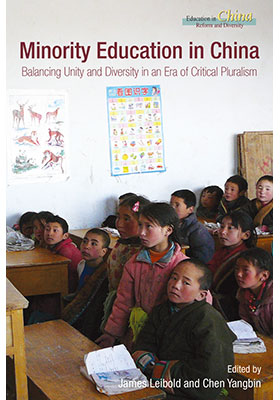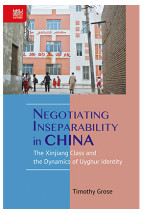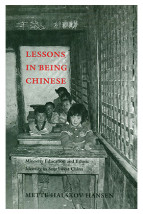Minority Education in China
Balancing Unity and Diversity in an Era of Critical Pluralism
(中國少數民族教育:從「多元一體」到 「批判性的多元論」)
ISBN : 978-988-8208-13-5
Education in China: Reform and Diversity
December 2013
432 pages, 6″ x 9″, 10 b&w illus. and 19 tables
- HK$250.00
Ebooks
This edited volume brings together essays by leading experts exploring different aspects of ethnic minority education in China: among these are the challenges associated with bilingual and trilingual education in Xinjiang and Tibet; Han Chinese reactions to preferential minority education; the role of inland boarding schools for minority students, and the mediation of religion and culture in multiethnic schools. The book covers these topics from a range of different perspectives: Uyghur, Tibetan, Korean, Mongolian, Han, and those of the West, combining empirical field studies with theoretical approaches. Previous scholarship has explored the pedagogical and policy challenges of minority education in China; this is the first volume to recast these problems in light of the Chinese Party-state’s efforts to balance ethnic diversity and cohesion through a shared sense of national belonging in the twenty-first century.
“This book is a timely and original contribution to the research on minority education in China that covers a wide range of topics including language, religion, gender, and intellectual styles. It will be a useful reference for scholars, graduate students, and policymakers in relation to minority education in particular.” —Yi Lin, Professor of Sociology, Xiamen University, China
“This is a splendid book on an important topic. It raises diverse issues on education for minorities in China, which involves pressing problems of equality, interethnic relations, gender and others. The essays are balanced, fair, wide-ranging and critical but sympathetic. The contributors include some of the leading authorities on the subject, with representatives of several of China’s ethnic groups. It is a first-rate and innovative study, which I strongly recommend.” —Colin Mackerras, Professor Emeritus, Griffith University, Australia







